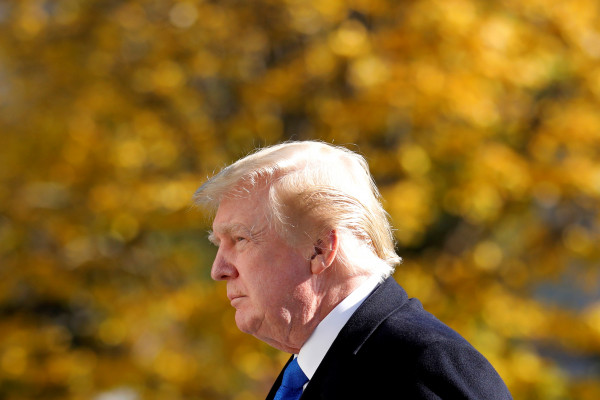Donald Trump Reportedly Enthusiastic About Handcuffs in Potential Hush Money Case Arrest, Sees It as a "Spectacle"

Donald Trump has reportedly expressed his desire to be handcuffed if indicted in the ongoing investigation regarding his alleged hush money payment to Stormy Daniels in 2016. Sources close to the former president say that he views the potential arrest as a "spectacle."
Despite his legal counsel's recommendation to quietly surrender if arrested, Trump is said to have told friends that he hopes the situation would escalate, even suggesting that being shot would make him "a martyr."
The former president seems to believe that an indictment could bolster his 2024 campaign and energize his supporters.
The recent drama began when Trump claimed to have discovered information suggesting that he would be arrested on Tuesday, March 21. On Saturday, March 18, Trump posted on Truth Social that he had learned about the impending arrest through "illegal leaks from a corrupt & highly political Manhattan District Attorneys office which allowed new records to be set in violent crime & whose leader is funded by George Soros."
He went on to assert that the potential arrest would be based on an "old & fully debunked (by numerous other prosecutors!) fairytale" and that "the far & away leading Republican candidate & former President of the United States of America, will be arrested on Tuesday of next week."
Trump Legally Allowed to Run for President Despite Indictment, but Victory May Be Elusive
Former President Donald Trump has vowed to continue his 2024 presidential bid even if he is charged with a crime. While legal experts confirm that there is no legal barrier to his running again, facing criminal charges could significantly hinder his chances of being reelected.
Lonna Atkeson, director of Florida State University's LeRoy Collins Institute, notes that voters often overlook accusations or rumors against candidates, but an actual indictment or arrest could change their perspective. She explains, "When you actually have an arrest, that's different, and that signals something."
Currently, Trump is facing four potential investigations, including his actions during the Jan. 6 attack on the U.S. Capitol, mishandling of classified documents, interference with the 2020 election results in Georgia, and the 2016 hush money payment to Stormy Daniels.
Despite these legal issues, the Constitution does not prevent candidates with criminal records from holding office. The only requirement for presidential candidates is that they must be at least 35 years old, a natural-born citizen, and have lived in the country for a minimum of 14 years. Delaney Marsco, senior legal counsel for ethics at the Campaign Legal Center, views the lack of restrictions as a positive aspect of the political system.
However, Trump's objective is not just to run, but to win – a goal that may be more challenging if he faces criminal charges.














